
Connecting music
For many years, the Slavianski Bazaar has been the cultural highlight of July. Festival veterans unanimously agree: a quarter of the century ago, none could imagine that the quiet festival would evolve into a major musical and theatrical territory of art, of the highest standard. In 25 years, the Slavianski Bazaar has significantly expanded its borders, to welcome artistes from 70 countries, and organisers plan on extending this further.
Director Alexander Sidorenko asserts, “The Slavianski Bazaar is unique in every sense, being the country’s calling card and an atmospheric meeting place for friends and acquaintances from around the world. Pleasingly, it’s becoming a trampoline for recognition and artistic growth of young performers. Among them is Croatia’s Damir Kejo: several years after his win at our Festival, he made a name for himself at the New Wave event as well.”
Like a magnet, Vitebsk is attracting talented people and fans from all corners of the world. In this Year of Culture, the Festival has attracted entrants from beyond neighbouring European countries, even drawing those from other continents. This level of interest is truly impressive.
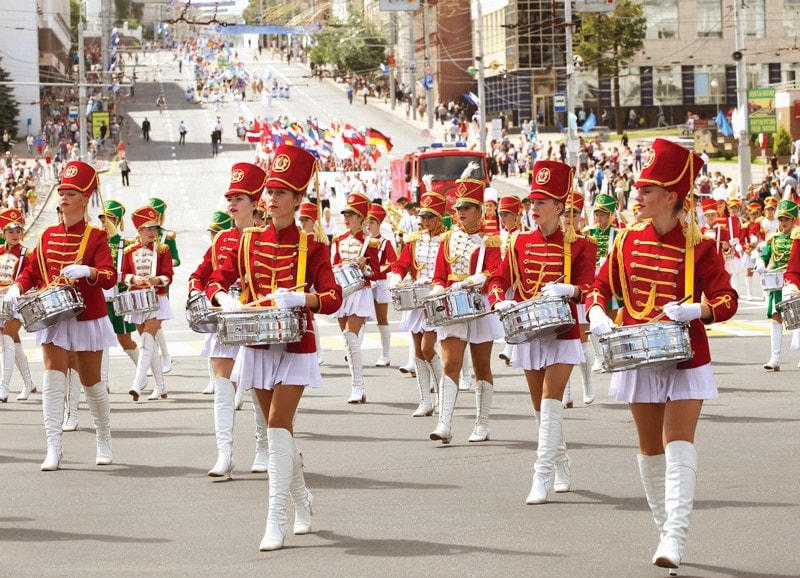
The International Pop Song Performers’ Contest, which is the Slavianski Bazaar’s backbone, this year gathered 44 bold young artistes at the Amphitheatre. For the first time, a representative of Colombia took part, charming Brayan. In fact, he began pleasing Belarusian fans a year ago, touring our country last summer with a concert programme. Later, he participated in the Wreath of Friendship Festival. Though he failed to win this year, he isn’t discouraged, telling us, “Victory and awards aren’t so important to me. I fell in love with your country and its people at first sight. As soon as I had the chance, I decided to return. I love being here!”
Lithuania’s Valeria Ilyin, 21, also failed to receive the much anticipated Lira prize but has many other no less prestigious awards. Valeria is a well-known Lithuanian musician, born in Panevezys. In 2012, she moved to Vilnius to enter the Conservatory’s Jazz Singing Department and, the same year, won the Song of Songs contest. Meanwhile, the Voice of Lithuania TV project named her ‘Discovery of the Year’. After graduating from the Conservatory, she studied at Vilnius College, graduating with a diploma in ‘Musical Theatre Acting’. Valeria then worked at the New York Academy of Drama. She notes that she came to Vitebsk not to win, having already claimed the International League of Musical Talent Festival Grand Prix this year, but because the Slavianski Bazaar offers another step in her career and much needed experience.
She tells us, “I’m happy to share the stage with so many talented young people: not only from Slavonic countries, but from around the world. Unlike other musical forums, all are friends rather than competitors. Probably, the country of Belarus is the reason, as its people are hospitable and friendly. As soon as I have the chance, I’ll return to Vitebsk as a spectator.”
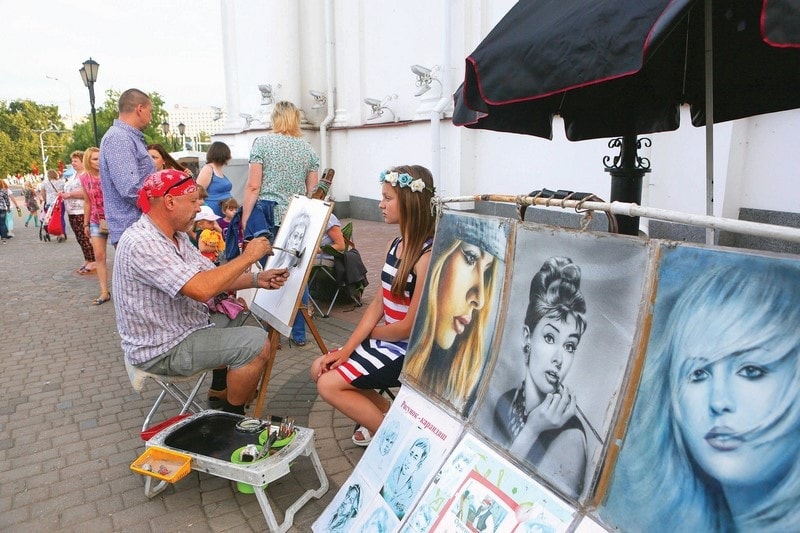
25 summer moments
The present Festival, celebrating its silver jubilee, invited all those who have left their mark on the Dvina River city over the years: all previous Grand Prix winners and Young Performers’ Contest laureates. The Vitebsk stage helped launch their careers.
Piotr Yelfimov, the 2014 winner of the Young Performers’ Contest, recollects with nostalgia, “I was the first to sing at the Amphitheatre, in the year it was built. My victory contributed to my career, which later included many competitions — including Eurovision. Vitebsk audiences are dearest to me and, with this in mind, I attend the Festival every year, with pleasure.”
Veteran artistes unanimously agree, saying that it’s impossible to refuse a return invitation to Vitebsk. Alena Lanskaya — a true butterfly of the Vitebsk stage — admits, “My victory in 2011 gave me so much, from new acquaintances and artistic projects to the audience’s love. The Slavianski Bazaar helped me to gain faith in myself, inspiring me to take part in Eurovision. The Vitebsk venue is like an annual meeting of ‘alumni’ and friends. We meet seldom; usually, only during Vitebsk’s Slavianski Bazaar.”
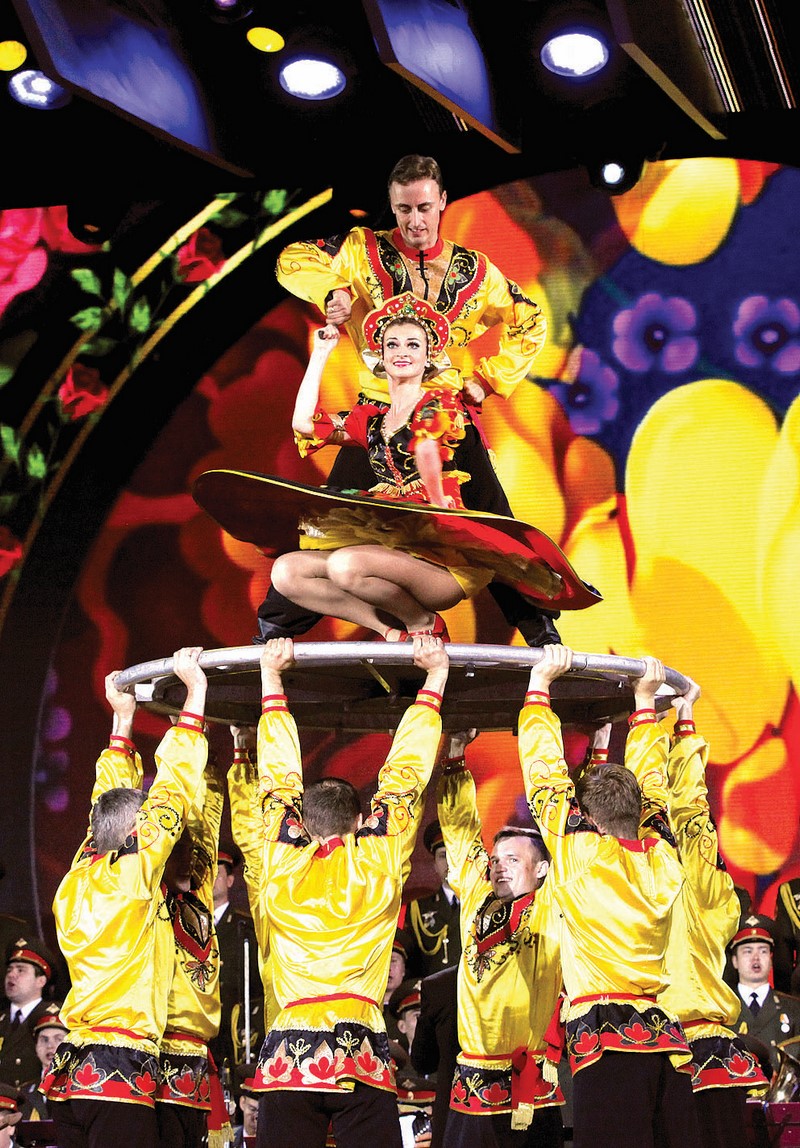
Max Lorens (who then performed under his true name of Maxim Sapatkov) won the Grand Prix in 2003. He recollects, “The Slavianski Bazaar helped me make a name for myself, rather than Moscow or rap singer Seryoga, as many might believe. Thirteen years ago, the Festival was broadcast in many participating countries. I was noticed and later invited to various parties and concerts. That same year, Nadezhda Babkina invited me to take part in her solo concert at Rossiya Concert Hall. Just imagine: this was Russia’s major concert venue and Iwas surrounded by well-known artistes. Being a young performer, this was a real chance for me to demonstrate my abilities. I must admit that I expected more from the Slavianski Bazaar — for example, studio work or concert activity. Sadly, over the years of its existence, the Festival has failed to become a powerful centre able to care for its winners. After my victory, I had to seek out paths of further development independently.”
Mexico’s Rodrigo de la Cadene helped audiences recollect the wonderful musical past. The performer of our merry Kalinka-Malinka notes, “After my contest win, I returned to Mexico as a hero. Everyone was surprised. Though born in Latin America, I managed to win a Slavonic contest. I have no answer to this. Perhaps my Russian song helped. Two years after the competition, my career in Mexico is still progressing; I tour a great deal and give concerts on various continents. I’m delighted to have been part of the Slavianski Bazaar; it’s been a true miracle.”
A special guest of the jubilee forum — Alla Pugacheva — named the Vitebsk stage ‘special’. She tells us, “I met Maxim [Galkin] here 15 years ago. He is my beloved man and our children — Harry and Liza — give my life meaning. I lost weight and beautified myself, wanting them to see a young mother in me — rather than a granny who wants to simply look younger.”
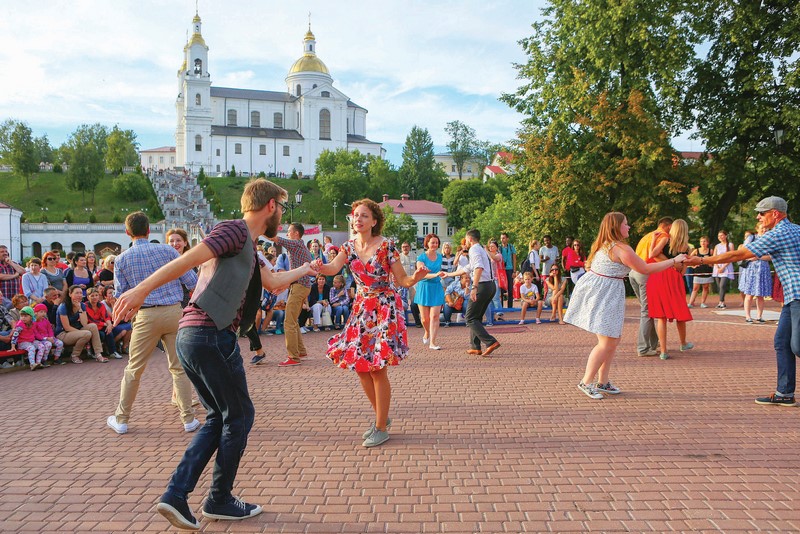
Vitebsk: key characters
During the years of the Festival’s existence, it has gained many wonderful traditions. Among them is the Belarusian President’s special award: Through Art to Peace and Mutual Understanding. This time, the honorable award has gone to Belarusian conductor and People’s Artiste Mikhail Finberg. The Grand Prix of the Pop Song Performers’ contest, Vitebsk-2016, goes to Alexey Gross, 26, five years after Alena Lanskaya won the contest. Both are graduates of Spamash studio.
Our performers have won major prizes three times in a row. The triumphal procession of Belarusians in the contest of young performers began in 2003, with Maxim Sapatkov (now known as Max Lorens). A year later, Piotr Yelfimov won, and in 2005 Polina Smolova celebrated.
Alex Gross sang under number 13, which is thought unlucky by some. However, the young man is not superstitious. He tells us that self-confidence is key, saying, “My secret is a good night’s sleep before each performance, in addition to lots of rehearsals. Much depends on the audience; it’s amazing in Vitebsk!”
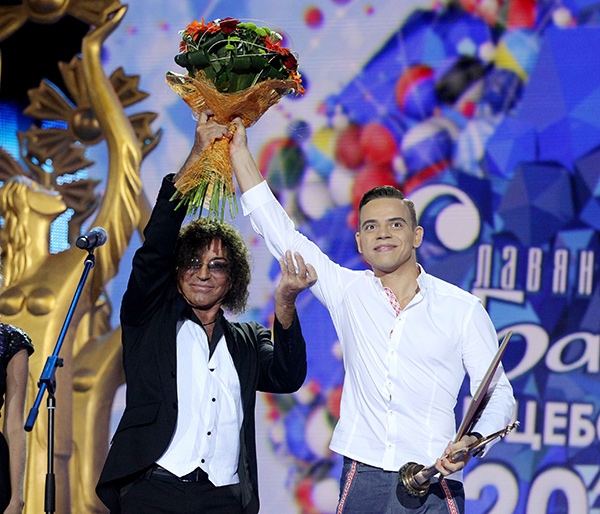
Alexey Gross, the winner of the Grand Prix of the Pop Song Performers’ contest at the Slavianski Bazaar (right), with Valery Leontyev, president of the jury
Last year’s first prize and $15,000 went to sunny Kazakhstan’s Adam, 29, who lost only two points. Italian Eleonora Vecchio and Anna Odobescu, from Moldova, were so close in points that the jury, headed by Valery Leontiev, decided to allow them to share second prize, each receiving a Lira and $5,000. Third prize was also shared, between Georgian Andria Gvelesiani and Israeli Anna Timofey (the latter being the unconditional leader of the People’s Choice Award).
This year, the Children’s Contest Grand Prix went to Russia’s Anastasia Gladilina, aged 11, while Belarusian Nastya Zhabko took first prize. Second prize (with $2,000) was divided between Ukrainian Katerina Manuzina and Tina Ruseva from Macedonia. Third prize was shared by the Czech Republic’s Nelya Zhakova and Kazakhstan’s Ramina Sarmurzina.
In the evening of the closing day, all the winners gathered, with guests and other participants, on the Summer Amphitheatre stage, to receive congratulations from such old friends as Alexander Buynov, Yelena Vaenga, Alexander Rosenbaum, Lyubov Uspenskaya, Alexander Tikhanovich and Yadviga Poplavskaya. We also congratulate you, dear Festival!
By Yuliana Leonovich
Photo: Belta & Paul Chuiko
Photo: Belta & Paul Chuiko











